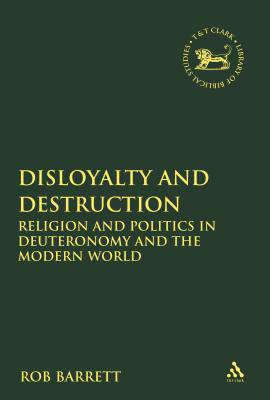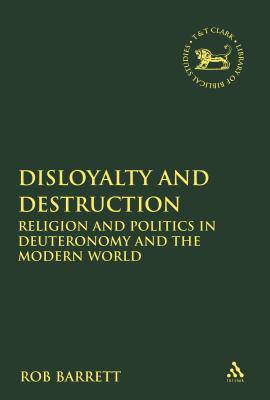
- Retrait en 2 heures
- Assortiment impressionnant
- Paiement sécurisé
- Toujours un magasin près de chez vous
- Retrait gratuit dans votre magasin Club
- 7.000.0000 titres dans notre catalogue
- Payer en toute sécurité
- Toujours un magasin près de chez vous
Description
The goal of the work is a heuristic reading strategy for a modern reader to engage with YHWH's threats against Israel in Deuteronomy. This goal is accomplished in three steps. First, the biblical text is considered through close reading to discern the logic of YHWH's threats: what motivates the threats, what form the threats take, and what effect the threats expect to produce. Second, a modern analogy is sought that most helpfully matches the structure and logic observed in the biblical text. A number of common modern analogies for the divine-human relationship (e.g., parent-child, master-slave, husband-wife) are deemed unhelpful because they cannot support the features of the biblical pattern. However, the threats of the modern state against those who threaten it are found to bear significant resemblance. Finally, this analogy is developed for each of several significant passages of Deuteronomy.
In order to justify and substantiate the analogy, this book examines the religious and political background surrounding both Deuteronomy and the modern state through historical reflection. Since there are significant differences between the religio-political situations, sociological perspectives are used to provide patterns that can be applied within both the ancient and modern contexts. Finally, although the focus of the work is on establishing an analogy between YHWH's threats and those of the modern state, the book dedicates one chapter to discussing dis-analogous features to avoid over-emphasizing the similarity between the two.Spécifications
Parties prenantes
- Auteur(s) :
- Editeur:
Contenu
- Nombre de pages :
- 304
- Langue:
- Anglais
- Collection :
Caractéristiques
- EAN:
- 9780567689658
- Date de parution :
- 25-07-19
- Format:
- Livre broché
- Format numérique:
- Trade paperback (VS)
- Dimensions :
- 156 mm x 234 mm
- Poids :
- 421 g

Seulement chez Librairie Club
Les avis
Nous publions uniquement les avis qui respectent les conditions requises. Consultez nos conditions pour les avis.





